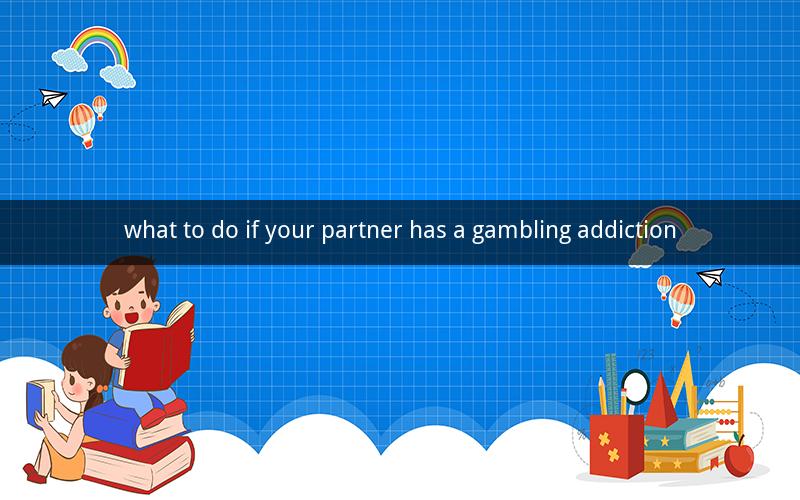
Table of Contents
1. Understanding Gambling Addiction
2. Recognizing the Signs of a Gambling Problem
3. The Impact of Gambling Addiction on Relationships
4. Communicating with Your Partner
5. Encouraging Your Partner to Seek Help
6. Supporting Your Partner Through Treatment
7. Taking Care of Yourself
8. Building a Support System
9. Coping with Relapse
10. Moving Forward
1. Understanding Gambling Addiction
Gambling addiction, also known as compulsive gambling, is a serious condition characterized by an inability to control the urge to gamble, despite the negative consequences it may have on one's life. It is a form of impulse control disorder and can affect anyone, regardless of age, gender, or socioeconomic status.
2. Recognizing the Signs of a Gambling Problem
Identifying the signs of a gambling problem is crucial in determining whether your partner's behavior is indicative of an addiction. Some common signs include:
- Preoccupation with gambling, even when it's not happening
- Lying about gambling activities
- Borrowing money or selling personal belongings to fund gambling
- Missing work or school to gamble
- Increasing debt due to gambling
- Engaging in illegal activities to fund gambling
3. The Impact of Gambling Addiction on Relationships
Gambling addiction can have a devastating impact on relationships, causing emotional, financial, and psychological strain. Some of the effects include:
- Trust issues
- Financial strain
- Emotional distance
- Infidelity
- Divorce
4. Communicating with Your Partner
Open and honest communication is essential in addressing your partner's gambling addiction. Here are some tips for effective communication:
- Choose a calm and private setting
- Express your concerns without being confrontational
- Use "I" statements to avoid placing blame
- Listen actively and without judgment
- Avoid arguing or becoming defensive
5. Encouraging Your Partner to Seek Help
Encouraging your partner to seek help is a critical step in overcoming their addiction. Here are some strategies to consider:
- Research treatment options and share them with your partner
- Offer to accompany them to appointments
- Encourage them to join support groups
- Be supportive and non-judgmental
6. Supporting Your Partner Through Treatment
Supporting your partner through treatment is crucial for their recovery. Here are some ways to provide support:
- Attend therapy sessions with your partner
- Learn about gambling addiction and its treatment
- Offer to help with household chores and finances
- Be patient and understanding
7. Taking Care of Yourself
It's important to prioritize your own well-being while supporting your partner. Here are some tips for taking care of yourself:
- Seek support from friends and family
- Engage in activities that promote relaxation and stress relief
- Consider therapy or counseling
- Set boundaries to protect yourself from emotional and financial strain
8. Building a Support System
Building a support system can provide additional resources and encouragement for both you and your partner. Here are some ways to build a support system:
- Join a support group for partners of gamblers
- Connect with other individuals who have experienced similar challenges
- Seek guidance from a therapist or counselor
- Stay informed about gambling addiction and its treatment
9. Coping with Relapse
Relapse is a common occurrence in the recovery process. Here are some strategies for coping with relapse:
- Understand that relapse is a part of the recovery process
- Encourage your partner to seek help immediately
- Remain supportive and non-judgmental
- Reflect on what led to the relapse and learn from it
10. Moving Forward
Moving forward after overcoming a gambling addiction is a challenging but rewarding process. Here are some tips for making the transition:
- Celebrate milestones and progress
- Continue to seek support and education
- Strengthen your relationship with your partner
- Focus on building a healthy and fulfilling life
Questions and Answers
1. Q: How can I tell if my partner's gambling is a problem?
A: Look for signs such as preoccupation, lying, borrowing money, missing work, and increasing debt.
2. Q: What should I do if my partner won't admit they have a problem?
A: Be supportive and non-judgmental. Encourage them to seek help and offer to accompany them to appointments.
3. Q: Can I force my partner to get help?
A: No, you cannot force someone to get help. However, you can encourage and support them in seeking treatment.
4. Q: How can I support my partner through treatment?
A: Attend therapy sessions, learn about gambling addiction, offer to help with household chores, and be patient and understanding.
5. Q: What if my partner relapses?
A: Understand that relapse is a part of the recovery process. Encourage your partner to seek help immediately and remain supportive.
6. Q: How can I take care of myself while supporting my partner?
A: Seek support from friends and family, engage in activities that promote relaxation, consider therapy or counseling, and set boundaries.
7. Q: Can gambling addiction be cured?
A: While there is no cure for gambling addiction, it can be effectively treated and managed with the right support and resources.
8. Q: How long does treatment for gambling addiction typically last?
A: Treatment duration varies depending on the individual and the severity of their addiction. Some may require short-term treatment, while others may benefit from long-term therapy.
9. Q: Can I get help for myself if I'm affected by my partner's gambling addiction?
A: Yes, you can seek support from friends, family, support groups, and therapists to help you cope with the challenges you're facing.
10. Q: What can I do to rebuild my relationship with my partner after overcoming gambling addiction?
A: Focus on building trust, open communication, and mutual support. Celebrate milestones and work together to create a healthy and fulfilling future.